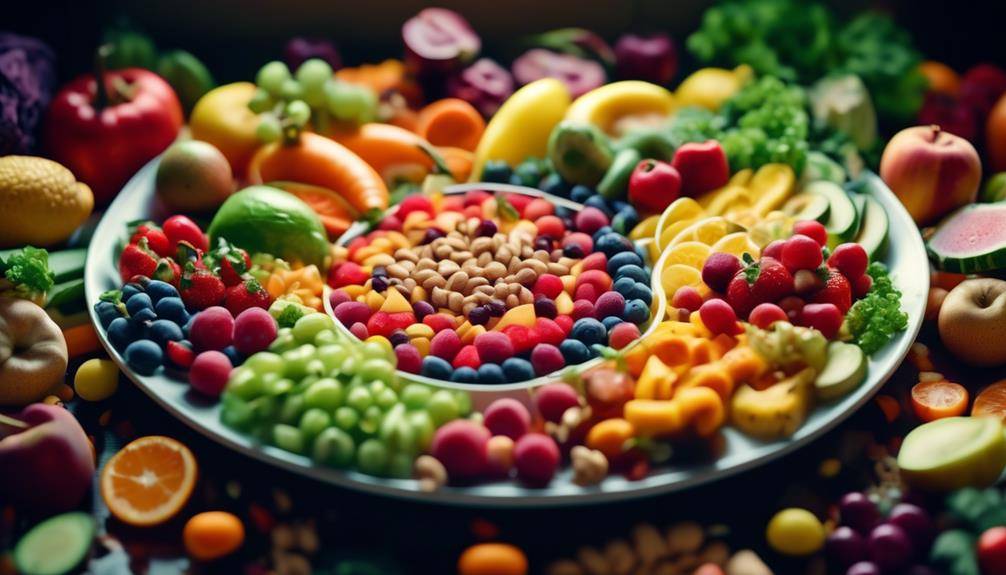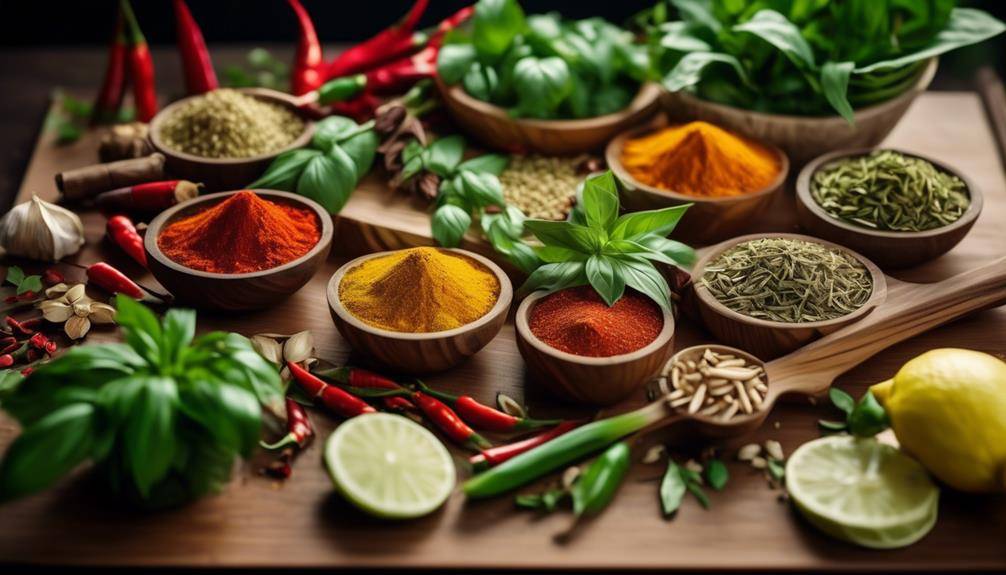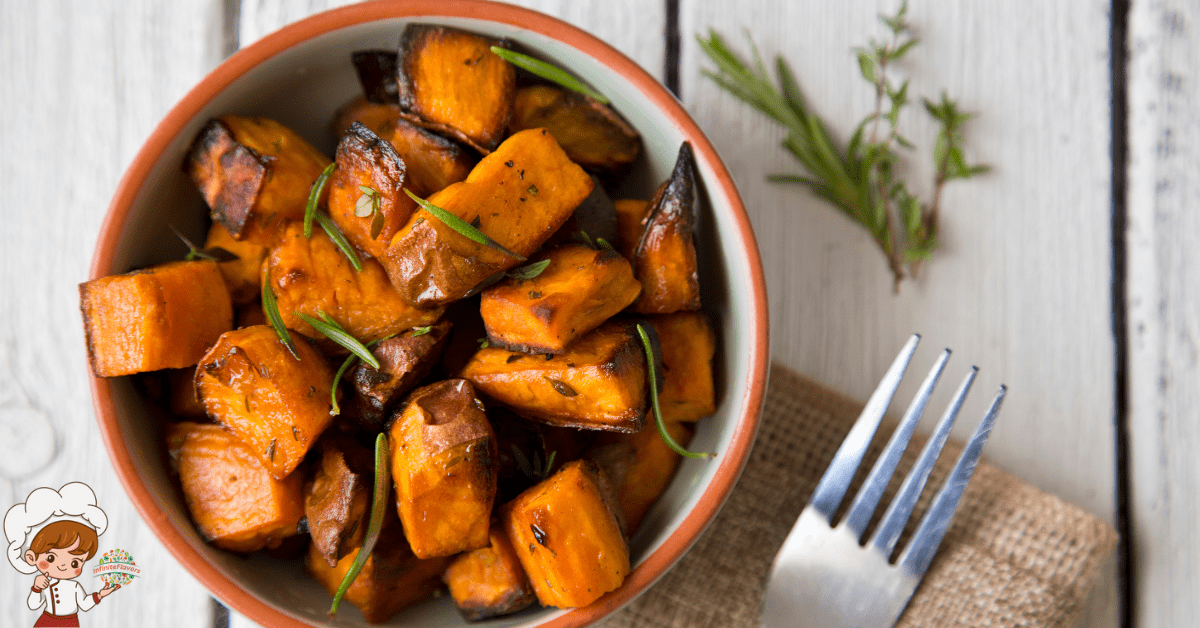Vegan Diet for Improved Digestion

Are you tired of feeling weighed down by digestive issues? Vegan Diet for Improved Digestion; It’s time to give your gut some much-needed love and attention. But where do you start? Look no further than the power of a vegan diet. By embracing a plant-based lifestyle, you can nourish your body with fiber-rich foods, gut-healthy fermented options, and a plethora of natural digestive enzymes. But that’s not all. There’s more to uncover about how a vegan diet can improve your digestion, and we’re about to reveal it all. So, buckle up and get ready to embark on a journey towards a healthier, happier digestive system.
The Importance of Fiber
Fiber plays a crucial role in improving digestion and overall gut health. When it comes to maintaining a healthy vegan diet, fiber is one of the key components that you should pay attention to. Not only does it aid in digestion, but it also promotes a healthy digestive system.
The presence of fiber in your diet helps regulate bowel movements and prevents constipation. It adds bulk to your stool, making it easier to pass through the digestive tract. This is important because constipation can lead to discomfort and other digestive issues. By including fiber-rich foods in your vegan diet, such as fruits, vegetables, whole grains, and legumes, you can ensure regularity in your bowel movements and promote a healthy digestive system.
Fiber also acts as a prebiotic, feeding the beneficial bacteria in your gut. These bacteria play a crucial role in maintaining gut health by aiding in digestion and nutrient absorption. A diet rich in fiber promotes the growth of these beneficial bacteria, which in turn helps maintain a healthy gut microbiome.
Furthermore, fiber can help regulate blood sugar levels by slowing down the absorption of glucose. This is particularly important for individuals with diabetes or those at risk of developing the condition. By incorporating fiber-rich foods into your vegan diet, you can help manage blood sugar levels and improve overall metabolic health.
Plant-Based Protein Sources
Including a variety of plant-based protein sources in your vegan diet is essential for meeting your nutritional needs and maintaining overall health. While animal-based protein is often considered the primary source, there are plenty of plant-based alternatives that can provide the necessary nutrients. These protein alternatives not only support muscle growth and repair but also play a crucial role in nutrient absorption.
One of the most popular plant-based protein sources is legumes, such as lentils, chickpeas, and beans. Legumes are not only high in protein but also packed with fiber, vitamins, and minerals. They are versatile ingredients that can be used in a variety of dishes, from soups and stews to salads and spreads. Another excellent source of plant-based protein is tofu and tempeh. Made from soybeans, these products offer a complete amino acid profile and can be used as a base for stir-fries, sandwiches, and even desserts.
Nuts and seeds are also great options for obtaining protein in a vegan diet. Almonds, walnuts, chia seeds, and flaxseeds are all rich in protein and healthy fats. They can be sprinkled onto salads, added to smoothies, or enjoyed as a snack. Quinoa, a pseudo-grain, is another exceptional protein source that is gluten-free and high in essential amino acids.
Including a variety of plant-based protein sources in your vegan diet ensures that you receive all the necessary nutrients for optimal health. These alternatives not only provide protein but also contribute to better nutrient absorption. By incorporating legumes, tofu, tempeh, nuts, seeds, and quinoa into your meals, you can maintain muscle health and support overall well-being on a vegan diet.
Gut-Healthy Fermented Foods
To improve your digestion, incorporating gut-healthy fermented foods into your vegan diet is highly beneficial. Fermented foods are packed with live bacteria and enzymes that promote a healthy gut microbiome. These beneficial bacteria aid in the breakdown and absorption of nutrients, improve immune function, and reduce inflammation in the digestive system.
One of the main benefits of consuming fermented foods is their ability to increase the diversity of gut bacteria. A diverse microbiome is associated with better digestive health and overall well-being. Fermented foods such as sauerkraut, tempeh, kimchi, and kombucha are excellent sources of probiotics, which are live microorganisms that confer health benefits when consumed. Probiotics help maintain the balance of good bacteria in the gut, which in turn supports optimal digestion.
In addition to probiotics, fermented foods also contain prebiotics, which are a type of fiber that serves as food for beneficial gut bacteria. This fiber helps nourish the existing bacteria in your gut, allowing them to thrive and promote a healthy digestive system. Examples of fermented foods that provide prebiotics include miso, kefir, and sourdough bread.
Including gut-healthy fermented foods in your vegan diet can also help alleviate common digestive issues such as bloating, gas, and constipation. The live cultures and enzymes present in fermented foods aid in the digestion of complex carbohydrates and proteins, making them easier for your body to break down and absorb.
To optimize your vegan gut health, aim to include a variety of fermented foods in your diet on a regular basis. Experiment with different options and find the ones that you enjoy the most. Remember to read the labels and choose products that are free from animal-derived ingredients to ensure they align with your vegan lifestyle.
Incorporating Digestive Enzymes
Incorporating digestive enzymes into your vegan diet can support optimal digestion and nutrient absorption. Digestive enzymes play a crucial role in breaking down the food you eat into smaller, more easily digestible components. While your body naturally produces digestive enzymes, certain factors such as age, stress, and digestive disorders can lead to enzyme deficiencies. This is where digestive enzyme supplements or foods rich in digestive enzymes can be beneficial.
Digestive enzyme supplements are available in various forms such as capsules, powders, and chewable tablets. These supplements typically contain a combination of enzymes like amylase, lipase, and protease, which help break down carbohydrates, fats, and proteins respectively. Taking these supplements with meals can assist in the breakdown of food and improve nutrient absorption.
In addition to supplements, incorporating digestive enzyme-rich foods into your vegan diet can provide natural sources of enzymes. Pineapple and papaya are two fruits known to be rich in digestive enzymes such as bromelain and papain, respectively. These enzymes can aid in the digestion of proteins and help alleviate digestive discomfort.
Fermented foods, which were discussed in the previous subtopic, are also a great source of digestive enzymes. Foods like sauerkraut, kimchi, and tempeh undergo a fermentation process that increases the enzyme content. Including these foods in your vegan diet can support digestive health and improve overall digestion.
It’s important to note that while digestive enzyme supplements and enzyme-rich foods can be beneficial, it’s always best to consult with a healthcare professional before adding them to your diet. They can help determine the appropriate dosage or recommend specific foods based on your individual needs.
Hydration and Digestion
To improve digestion, it is crucial to prioritize hydration. Water plays a vital role in the digestive process, aiding in the breakdown and absorption of nutrients. Staying properly hydrated helps to maintain the optimal functioning of your digestive system, preventing issues such as constipation and bloating. Ensure you drink an adequate amount of water throughout the day to support healthy digestion.
Water and Digestion
Hydrating your body adequately plays a crucial role in maintaining optimal digestion. Here are three reasons why water is essential for a healthy digestive system:
- Improved Nutrient Absorption: Water helps break down food and facilitates the absorption of nutrients by your body. It aids in the digestion and absorption of carbohydrates, proteins, and fats, ensuring that your body can utilize these nutrients effectively.
- Prevention of Constipation: Sufficient water intake helps prevent constipation by softening the stool and promoting regular bowel movements. When you are dehydrated, your body absorbs more water from the colon, resulting in harder stools and difficulty passing them.
- Enhanced Digestive Enzyme Function: Water is necessary for the production and activation of digestive enzymes. These enzymes break down the food you eat, allowing for proper digestion and nutrient extraction.
Remember to drink enough water throughout the day to support your digestive system and promote overall health. Stay hydrated for better digestion!
Importance of Hydration
Adequate hydration is crucial for maintaining optimal digestion and supporting overall digestive health. Water plays a vital role in the digestive process by helping to break down food and absorb nutrients. When you’re properly hydrated, your body can produce enough saliva, stomach acid, and digestive enzymes to effectively digest food. It also helps to prevent constipation by keeping your stools soft and easy to pass.
Additionally, staying hydrated can reduce the risk of developing common digestive issues such as acid reflux and ulcers. To ensure adequate hydration, aim to drink at least 8 cups (64 ounces) of water per day. Remember, other beverages like herbal tea and infused water can also contribute to your daily water intake. Prioritizing hydration is a simple yet powerful way to support your digestive health.
Avoiding Processed Foods
Avoiding processed foods is essential for improving digestion on a vegan diet. When you eliminate processed foods from your diet, you allow your body to receive the nutrients it needs in their most natural form. Here are three reasons why avoiding processed foods is crucial for optimal digestion on a vegan diet:
- Nutrient Density: Processed foods are often stripped of their natural nutrients during manufacturing and replaced with artificial additives. By avoiding processed foods and focusing on whole plant-based foods, you ensure that your body gets a wide range of essential vitamins, minerals, and antioxidants. These nutrients play a crucial role in supporting healthy digestion and preventing digestive issues.
- Fiber Intake: Processed foods are generally low in fiber, while a vegan diet is naturally high in fiber. Fiber is essential for maintaining regular bowel movements and promoting a healthy gut. By avoiding processed foods and choosing whole grains, fruits, vegetables, legumes, and nuts, you increase your fiber intake, which can help prevent constipation and promote overall digestive health.
- Reduced Inflammation: Processed foods often contain additives, preservatives, and artificial ingredients that can trigger inflammation in the body. Chronic inflammation can lead to digestive problems such as bloating, gas, and discomfort. By avoiding processed foods and opting for whole, plant-based foods, you reduce your intake of inflammatory substances and promote a healthier gut environment.
Mindful Eating Practices
To promote better digestion on a vegan diet, incorporating mindful eating practices can be beneficial. Mindful eating techniques involve paying attention to the present moment and being fully aware of your eating experience. By practicing mindful eating, you can enhance your digestive health and overall well-being.
One of the first mindful eating techniques to implement is to eat slowly and savor each bite. Take the time to chew your food thoroughly, allowing your digestive enzymes to break it down more easily. This can help prevent indigestion and bloating.
Another important aspect of mindful eating is listening to your body’s hunger and fullness cues. Eat when you are hungry, and stop when you are satisfied, rather than overeating. This can prevent discomfort and promote better digestion.
Additionally, being mindful of the quality of your food is crucial. Choose whole, plant-based foods that are rich in fiber, as this can support a healthy digestive system. Focus on incorporating a variety of fruits, vegetables, whole grains, legumes, and nuts into your meals.
Avoiding distractions while eating is another key aspect of mindful eating. Eating in front of the TV or while scrolling through your phone can lead to mindless eating and poor digestion. Instead, create a peaceful environment and give your full attention to your meal.
Incorporating these mindful eating practices into your vegan diet can have a positive impact on your digestive health. By being present and aware during meals, you can optimize your digestion, prevent digestive issues, and enjoy the full benefits of a vegan lifestyle.
Balancing Macronutrients
To balance macronutrients on a vegan diet, you need to carefully consider your protein sources, ensuring you consume a variety of plant-based options like legumes, tofu, and tempeh. Incorporating healthy fats, such as avocados, nuts, and seeds, is also crucial for overall digestion improvement. Additionally, focusing on high-fiber carbohydrates like whole grains, fruits, and vegetables can help maintain a healthy digestive system.
Protein Sources for Vegans
Including a variety of plant-based protein sources in your vegan diet is essential for achieving a balanced macronutrient intake. Here are three options to consider:
- Vegan Protein Powders: These powders, made from sources like pea, brown rice, or hemp, are convenient and versatile. They can be added to smoothies, oatmeal, or baked goods to increase protein content.
- Legumes and Beans: Lentils, chickpeas, black beans, and other legumes are not only rich in protein but also provide fiber and other essential nutrients. They can be incorporated into soups, salads, or used as a base for veggie burgers.
- Nuts and Seeds: Almonds, walnuts, chia seeds, and hemp seeds are excellent sources of protein and healthy fats. They can be enjoyed as a snack or added to salads, granola, or nut butters for an extra protein boost.
Healthy Fats on a Vegan Diet
Incorporating healthy fats into your vegan diet is essential for achieving a balanced macronutrient intake. While it is common to associate fats with negative health effects, not all fats are created equal. Healthy fats, such as monounsaturated and polyunsaturated fats, provide numerous benefits for your body. They help to support cell function, protect organs, and aid in the absorption of fat-soluble vitamins. On a vegan diet, you can find healthy fats in foods like avocados, nuts, seeds, and plant-based oils like olive oil. These fats not only add flavor and texture to your meals but also provide essential nutrients for optimal health. Including healthy fats in your vegan diet can help you maintain a well-rounded and balanced macronutrient intake.
Carbohydrates and Fiber Intake
As you focus on achieving a balanced macronutrient intake by incorporating healthy fats into your vegan diet, it is important to also consider your carbohydrates and fiber intake. Carbohydrates play a crucial role in providing energy for your body, but not all carbs are created equal. Opt for complex carbohydrates such as whole grains, legumes, and starchy vegetables.
These options are rich in fiber, which is essential for gut health. High fiber vegan foods help regulate digestion, prevent constipation, and promote a healthy gut microbiome. Aim for at least 25-30 grams of fiber per day by including foods like quinoa, oats, lentils, broccoli, and chia seeds in your meals. Remember to drink plenty of water to ensure the fiber works efficiently in your digestive system.
The Role of Probiotics
Probiotics play a crucial role in improving digestion on a vegan diet. These live microorganisms can provide numerous benefits to your gut health, aiding in the breakdown and absorption of nutrients from plant-based foods. Incorporating probiotic supplements or fermented drinks into your vegan diet can help maintain a healthy balance of gut bacteria, leading to improved digestion.
Probiotic supplements are a convenient way to introduce beneficial bacteria into your digestive system. They contain specific strains of bacteria that can support the breakdown of complex carbohydrates and fiber, which are abundant in a vegan diet. By promoting the growth of beneficial bacteria, probiotic supplements can help alleviate digestive issues such as bloating, gas, and constipation.
Fermented drinks like kombucha, kefir, and sauerkraut juice are also excellent sources of probiotics. These drinks are made through a fermentation process, where live bacteria convert sugars into organic acids, promoting the growth of beneficial bacteria. Incorporating fermented drinks into your vegan diet can enhance the diversity of your gut microbiota, leading to improved digestion and nutrient absorption.
Research has shown that probiotics can help alleviate symptoms of digestive disorders such as irritable bowel syndrome (IBS) and inflammatory bowel disease (IBD). They can reduce inflammation in the gut, enhance the gut barrier function, and modulate the immune system. These effects can be particularly beneficial for vegans, as certain plant-based foods may be harder to digest compared to animal-based products.
Vegan Recipes for Digestive Health
Looking for gut-friendly vegan recipes to improve your digestive health? Look no further! Plant-based diets have been shown to provide numerous benefits for digestion, including increased fiber intake and a higher intake of beneficial nutrients. By incorporating these vegan recipes into your diet, you can support a healthy gut and promote optimal digestion.
Gut-Friendly Vegan Recipes
Incorporate these gut-friendly vegan recipes into your diet for improved digestive health:
- Gut-Friendly Smoothies: Start your day off right with a refreshing smoothie packed with fiber and nutrients. Blend together leafy greens like spinach or kale, along with fruits like bananas and berries. Add a spoonful of chia seeds or flaxseeds for an extra boost of fiber and omega-3 fatty acids. These smoothies are not only delicious but also promote a healthy gut.
- Vegan Probiotics: Probiotics are beneficial bacteria that support a healthy gut. Incorporate vegan probiotics into your diet by consuming foods like sauerkraut, kimchi, tempeh, and miso. These fermented foods provide a natural source of probiotics and can help balance the gut microbiome.
- Fiber-Rich Meals: Fiber is essential for maintaining a healthy digestive system. Incorporate fiber-rich foods like whole grains, legumes, fruits, and vegetables into your meals. Try dishes like lentil curry with brown rice, roasted vegetable quinoa salad, or a hearty chickpea stew. These meals not only provide essential nutrients but also promote regular bowel movements and a healthy gut.
Plant-Based Digestion Benefits
To further enhance your digestive health on a vegan diet, explore the numerous benefits of plant-based foods and discover delicious recipes that promote a healthy gut. Plant-based digestion tips can help optimize your vegan diet and improve gut health. Firstly, incorporating fiber-rich foods like fruits, vegetables, whole grains, and legumes can aid in digestion by promoting regular bowel movements and preventing constipation. These foods also contain prebiotics, which serve as fuel for beneficial gut bacteria, supporting a healthy gut microbiome.
Additionally, plant-based proteins, such as tofu, tempeh, and beans, are easier to digest compared to animal proteins, reducing the risk of digestive discomfort. Lastly, consuming fermented foods like sauerkraut, kimchi, and miso can provide probiotics, which promote the growth of beneficial gut bacteria. By following these plant-based digestion tips, you can optimize your vegan diet and promote a healthy gut.
Vegan Diet for Improved Digestion; Frequently Asked Questions
Can a Vegan Diet Provide Enough Fiber for Optimal Digestion?
A vegan diet can provide sufficient fiber for optimal digestion. Incorporating plant-based foods such as fruits, vegetables, whole grains, and legumes can help meet your fiber intake needs and promote digestive health.
How Can I Ensure I Am Getting Enough Protein on a Vegan Diet for Better Digestion?
To ensure you get enough protein on a vegan diet for better digestion, focus on plant-based protein sources like legumes, tofu, tempeh, and quinoa. These options are not only rich in protein but also promote digestive health.
Are There Any Specific Fermented Foods That Are Especially Beneficial for Gut Health on a Vegan Diet?
Fermented foods like sauerkraut and tempeh can be beneficial for your gut health on a vegan diet. They contain probiotics that support a healthy gut microbiome, helping improve digestion.
Do I Need to Take Digestive Enzymes as a Vegan to Improve Digestion?
To improve digestion on a vegan diet, consider taking digestive enzymes. They can help break down plant-based foods and enhance nutrient absorption. It’s a beneficial option to support your digestive health and overall well-being.
What Are Some Hydration Tips That Can Support Healthy Digestion on a Vegan Diet?
To support healthy digestion on a vegan diet, hydration tips are crucial. Water intake is important for digestion. Stay hydrated throughout the day by drinking plenty of water, herbal teas, and consuming hydrating fruits and vegetables.
Conclusion
In conclusion, a vegan diet can greatly improve digestion by providing ample fiber, plant-based protein sources, gut-healthy fermented foods, digestive enzymes, and promoting hydration and mindful eating practices. Additionally, balancing macronutrients and incorporating probiotics can further enhance digestive health. By following these guidelines and incorporating vegan recipes for digestive health, individuals can experience improved digestion and overall well-being.








